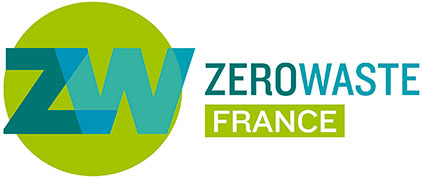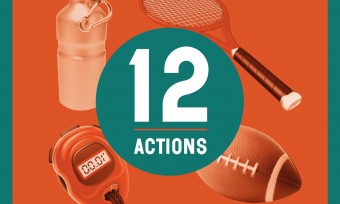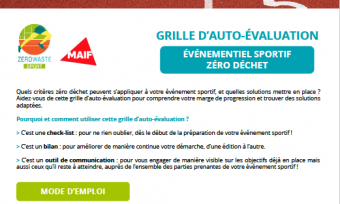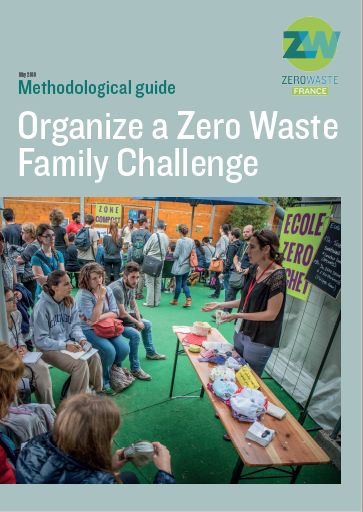How to improve waste sorting and recycling
Unlike waste disposal technologies, recycling allows to preserve the material in order to reuse it in other products. Source separation, when carried out as soon as possible (at home, in companies…) is a crucial action for an optimized recycling.
Source separation to facilitate recycling
Waste which has not been sorted at the source is difficult (or even impossible) to recycle. Indeed, recycling is feasible only if material flows are homogeneous. Sort out waste that has been mixed (which is called “over-separation ») is not only technically very difficult, but more expensive as well, and leads to less competitive recycling. Sorting out waste at the source thus allows to improve the quality of the material that is recycled, and to decrease the number of a posteriori interventions of « over separation ».
It is therefore very important that everyone at home gets involved in waste source separation, so that recyclable or bio waste can be forwarded to the adapted recycling branches.
However, several common preconceptions remain : sorting out waste would be useless, waste would be re-mixed afterwards, etc…It is wrong ! If waste bins containing too many defaults in waste sorting can sometimes be rejected by garbage collection, communities have no interest in sending to incineration waste that could be recycled. For each ton of separated waste, they receive a financial support.
Progress of recycling goes through the extension of what is called « new branches” and “sorting instructions”. In other words, the implementation of specific bins and skips for each type of waste flow. The more waste is collected separately, the easier the treatment in each branch : this is true for glass or paper, but also for waste disposal platforms (wood, metal, batteries, green waste), and in the streets and all public spaces.

Achieving the objectives
Every year, France produces nearly 38 million tons of household and similar waste (about 570 kg per capita, including waste coming from waste disposal platforms, from shops, etc…) : only 35 to 40% are really recycled, the remaining being burned or landfilled.
The scope of progress is therefore great ! Especially since the energetic transition policy has set a goal of 65% of recycling waste (including composting for organic waste) by 2025. Europe enforces a target of 65% of municipal waste recycling by 2035.
Levers for local authorities
Several levers already exist to improve household and similar waste separate collection performances, and hence increase the collection rate of recyclable waste. The aim is to reduce loss of recyclable waste, because they are mixed with non-recyclable. A good way of knowing one’s own community results is to read the community annual report (in French), which shall be prepared each year and is available to anyone.
Incentive pricing
Incentive pricing is a type of municipal waste management financing, which consists in relating the service tax to the quantity of waste produced (number of bins collected, quantity of waste, number of people in the house, etc…). It is already put into operation for about 5 million French people by local authorities and represents for the time being a tool of public policy that allows to sharply increase the ratio of recyclable waste collection. In fact, depending on the starting point, this ratio can increase by 30 % in only a few years ! This increase is more important when incentive pricing is accompanied by a separated organic waste collection (specific collection or individual composters). The energetic transition law, voted in 2015, provides that 25 millions of French people will get this type of incentive pricing by 2025
Sorting out all packaging
If today, not every packaging is accepted for recycling in every community, this issue should be resolved by 2022. In fact, the energetic transition law provides the implementation of “extended sorting instructions” : it means the modernization of sorting centers, which shall accept all types of packaging, including plastic foils, food trays, etc…). Indeed, the implementation of waste separation in the 90’s in France had begun with the development of the most profitable and easy to organize recycling branches (plastic bottles, etc…). But if the sorting is easier for people as it is more automatic, it should lead to increase recycling !
Sorting waste in companies
Every year in France, about 60 million tons of industrial and economical waste is produced (not to mention the construction sector). Sorting waste in companies is therefore essential to increase recycling. Whether office paper, construction waste or fast food waste, everyone has to start recycling, since for companies as well, waste are better recycled when separated.
For that purpose, sorting is now mandatory in each company or administration which either has a private waste collection, or produces more than 1100 litters waste a week when using municipal waste collection. This obligation is set by the decree from the 10th of March 2016, the so called “5 flows” decree (plastic, wood, metal, paper, glass). Its implementation is however delayed, because many companies have not yet done the actions that are necessary (consult article).
Campagne pour le tri dans les fast-foodThe limits of waste sorting
Unfortunately, all waste is not recyclable : there are a lot of chemicals or items which are called “separation disturbers”. We can mention packaging (multi-materials which cannot be separated, non recyclable materials…) or some furniture (which are not dismountable or treated with dangerous substances) or textiles. All these disturbers are products that cannot be recycled, or even pollutants that prevent other flows to be recycled (consult our dossier about non recyclable plastic PET). For all these products, it is now time for companies to eco-design their products : at the end, some chemicals will no longer be allowed, multi-materials shall be avoided, products will be dismountable, etc…Without this, recycling won’t reach a 100 % ratio.
Anyway, the best waste remains the one which is not produced !



